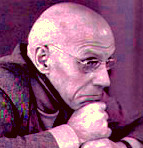I'm a big nerd and I've read a lot of books of all different kinds, and I'm an English teacher.
Tell me what you like or what you're looking for and I'll recommend something I think is good
Also, fun history fact, this comm used to be called c/books until I started posting poetry on main every day in protest of there not being a literature comm. Direct action gets the goods comrades

My hot tip is to do an ADHD screening test just to rule it out as a possibility because you're saying exactly what undiagnosed, unmedicated me would have said.
What sort of nonfiction stuff are you talking, if you don't mind me asking?
I find that with nonfiction like microhistory I can just immerse myself in it because it's written for a brain like mine.
For theory, I strongly recommend participating in a reading group if there's one available. You can substitute this for theory podcasts and/or following the discussion on a social media platform from a past reading group and considering the comments that people make along with coming up with responses to those comments (even if you don't actually post them) because being a part of a discussion brings a richness to the reading and it helps to keep motivation up.
When it comes to legit history, that's tough. Either I slog through it and do my best, knowing that unless the book is written exceptionally well, I'm just not going to wring everything out of the reading that a scholar would (and that's fine) or I try to find a good overview of the historical subject to help me familiarise myself with the main figures/movements/events etc. so that I can contextualise the info I get while reading the book - this might be a video essay, a lecture, or a book that is oriented towards beginners to use as a primer.
Things like biographies are hit and miss imo and it really depends on the author's ability to write and how good they are at research.
deleted by creator
I know exactly what you mean.
One of the things that might resonate is the fact that an ADHD brain is motivated by different factors, in particular:
So if you can stoke one (or ideally more) of these things then you should be able to get motivation to read or to complete other tasks that you have been struggling to initiate.
Interest is a tricky one but if you can spark your interest by parlaying your current interests into where you want to focus, it becomes easier (this is a tricky skill to describe but as an example, I love cooking and I hate chemistry. The only ways that I've been able to engage with chemistry have been by making what you might call Improvised Ex... citement Devices back when I was a teen [not the kinky kind!] or by using my interest in cooking to learn about food science to learn about chemistry.)
Competition is easier. Race the clock, put artificial deadlines on yourself, make a commitment to talk to a person about a chapter of a book, participate in an online course where the deadlines are set for you, that sort of thing. When you're racing against something, you'll be better able to focus in and remain focused. This overlaps with urgency in many respects.
Novelty can be a bit tricky but some people benefit from reading more than one book at a time and switching between them when one gets boring. I can't do that because my brain goes on deep-dives and pulling myself out of one rabbithole and into another is too difficult. But as Foucault has suggested, different settings can definitely help with a sense of novelty.
Know that your motivation will ebb and flow and try to ride the wave rather than swimming against the tide because the latter will sap your executive function and forcing things will onlymake it harder.
I often use discussions (and arguments) online to motivate me into reading more. Often I've read the important parts of a book but getting in depth on a topic makes me excited about it and it can motivate me to read more of the book that I'm referencing because I feel this renewed sense of purpose in reading up because it feels more relevant somehow. If you can find a person close to you (or someone on social media) who is open to it, try reporting back to them about what you've learned or what's happening in the story. This can help keep the motivation up by making it more external.
Moderate or heavy exercise, even fairly short amounts of it, can have a significant positive effect on ADHD brains for focus. That might mean running or cycling or even just doing 5 mins of jump rope but if you really want to get focused without medication then that sort of exercise can go a long way.
Other options are: some people report good effects from taking L-tyrosine or L-dopa supplements, some people have been known to import Modafinil on the gray market to use that because it's one of the second-line meds used to treat ADHD. YMMV on these but it's worth considering.